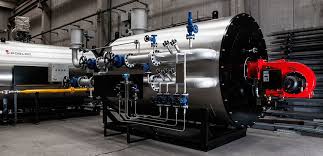
Nov . 18, 2024 06:05 Back to list
steam boiler vs water boiler
Steam Boiler vs. Water Boiler A Comprehensive Comparison
When it comes to heating systems in industrial and residential settings, steam boilers and water boilers are two of the most commonly used options. Both have their unique features, applications, and benefits. In this article, we will explore the differences, advantages, and disadvantages of steam boilers and water boilers, helping you decide which option may be better suited for your needs.
Understanding Steam Boilers
Steam boilers are designed to generate steam by heating water. They operate on the principle of converting water into steam, which can then be used for heating or powering machinery. These boilers can be classified into two main types fire-tube boilers and water-tube boilers.
Fire-tube boilers contain tubes through which hot gases pass. The heat generated from the combustion process heats the water surrounding the tubes, creating steam. This type is known for its simplicity and cost-effectiveness, making it a popular choice for smaller applications.
Water-tube boilers, on the other hand, circulate water within the tubes heated externally by combustion gases. This design allows for higher pressure and temperature capabilities, making water-tube boilers more suitable for large industrial applications where steam demands are high.
Understanding Water Boilers
Water boilers, often referred to as hot water boilers, heat water for various purposes, primarily space heating. Unlike steam boilers, they do not convert water into steam but instead maintain water in a heated state. Water boilers can be found in residential settings, providing hot water for domestic use, as well as in commercial applications.
Types of water boilers include conventional (or storage) water heaters, which hold a reservoir of hot water, and tankless water heaters, which heat water on demand. The efficiency and simplicity of these systems make them ideal for home heating and hot water requirements.
Key Differences
The primary distinction between steam and water boilers lies in their end product steam boilers generate steam, while water boilers provide hot water. This difference leads to several important implications in their applications
steam boiler vs water boiler

1. Heat Transfer Efficiency Steam can transfer heat more efficiently than hot water. This is particularly beneficial in industrial sectors where rapid heat transfer is crucial for processes such as sterilization or power generation.
2. Pressure and Temperature Steam boilers typically operate at higher pressures and temperatures compared to water boilers. This aspect makes steam boilers preferred in industries that require high-pressure steam for operations.
3. Applications Steam boilers are commonly used in power plants, refineries, and food processing industries, while water boilers are prevalent in residential heating systems and commercial buildings that require hot water.
4. Installation and Maintenance Steam boilers are generally more complex to install and maintain due to their high-pressure systems and the potential for more intricate safety protocols. Water boilers tend to be simpler and more user-friendly, requiring less maintenance.
Advantages and Disadvantages
Advantages of Steam Boilers - High-temperature steam is effective for certain industrial applications. - Capable of handling high pressure for power generation. - Efficient heat transfer properties.
Disadvantages of Steam Boilers - Higher installation and maintenance costs. - Safety concerns due to high-pressure systems.
Advantages of Water Boilers - Lower installation and operating costs. - Simplicity and ease of maintenance. - Suitable for residential heating and instant hot water needs.
Disadvantages of Water Boilers - Generally less efficient for high-temperature industrial applications. - Limited capacity in terms of heat output compared to steam boilers.
Conclusion
Choosing between a steam boiler and a water boiler ultimately depends on your specific needs and applications. If you require high-pressure steam for industrial processes, a steam boiler is the way to go. However, for residential heating and hot water needs, a water boiler offers a simpler and more cost-effective solution. Understanding the unique features and applications of each can help you make an informed decision that best suits your requirements.
-
High-Efficiency Commercial Oil Fired Steam Boiler for Industry
NewsJul.30,2025
-
High-Efficiency Biomass Fired Thermal Oil Boiler Solutions
NewsJul.30,2025
-
High Efficiency Gas Fired Thermal Oil Boiler for Industrial Heating
NewsJul.29,2025
-
High-Efficiency Gas Fired Hot Water Boiler for Sale – Reliable & Affordable
NewsJul.29,2025
-
High Efficiency Biomass Fired Hot Water Boiler for Industrial and Commercial Use
NewsJul.29,2025
-
High-Efficiency Biomass Fired Hot Water Boiler for Industrial Use
NewsJul.28,2025
Related PRODUCTS






















